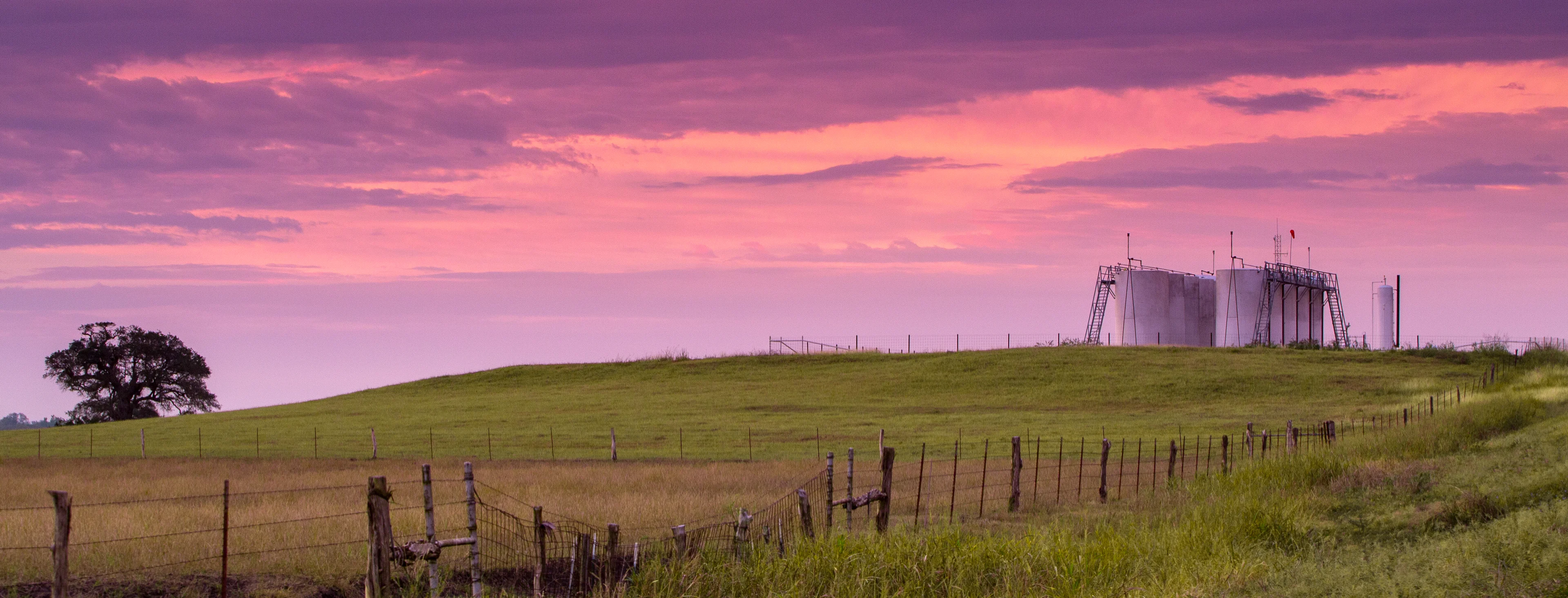Carbon is the elephant in the room.
We’ve addressed it. Now we’re showing it the exit.
We’re directly confronting one of the biggest environmental issues. To make meaningful impact, BKV is ambitious, aggressive and comprehensive in our emissions-reduction strategies. And we’ve had a running start, making demonstrable progress on a range of environmental goals, from wildlife protection to water conservation and reuse.
We reduced 541,000 tons of CO2e. And that’s just in one year.*
Carbon capture, storage and then some.
With expertise in geology, drilling and carbon management, BKV is uniquely suited for Carbon Capture Utilization and Sequestration (CCUS), which is fundamental to reducing emissions. We’ve effectively—and profitably—used this technology on our own wells in Texas and Pennsylvania. And through numerous partnerships, even a dedicated subsidiary, we’re in the process of expanding our services to third-party operations and to the industry at large.
*2022 Approximation compared to 2021 BKV basleine plus Exxon Barnett estimation. Includes 330,000 MT of direct GHG emissions reductions. It also includes 111,000 MT of GHG emissions reductions due to inventories, modeling and calculation methodology updates.

There’s energy in synergy.
Our core business is natural gas production. But our net-zero strategies span the entire BKV business continuum, including midstream systems, power generation and CCUS. Which makes our company a first of its kind, able to fully commercialize a net-zero emissions strategy across the energy value chain. Generating significant momentum in the process.
Responsibly sourced. Rigorously endorsed.
As part of our approach, we’ve invested $12 million in technology and operational optimizations. With electrification, pneumatic conversion and solar, we’re reducing our reliance on hydrocarbons at the wellhead. For leak detection, we use real-time monitoring, fixed-wing flyovers, even satellites. Our Pad of the Future program alone has already reduced 20% of our Scope 1 and 2 upstream emissions.
100% of Scope 1 and 2 of upstream GHG emissions by the end of 2025.
Based on our 2022 baseline, approximately 60% of our upstream GHG emissions are projected to be reduced through our Pad of the Future Program, technology and optimization.
100% of calculated Scope 3 upstream GHG emissions by the early 2030s.
Our word on carbon is gold

“Decarbonization is not just a check the box to us. It comes from wanting to do the right thing and be a force for good.”
- Lauren Read, Vice President of BKV dCarbon Ventures
For Lauren Read, BKV’s Vice President of dCarbon Ventures, the intent was made clear early on. Carbon Capture Utilization and Sequestration (CCUS) initiatives would be far more than subject matter for a sustainability report. It would drive the company’s culture, from CEO Chris Kalnin down.
“I remember being in a leadership meeting where Chris asked each of us to personally commit to the decarbonization effort. We stacked hands on it,” said Read. “That sincerity made a profound impression on everyone in the room.”
Putting sincerity to work, BKV looked at the gamut of sustainability strategies, from purchasing offsets to hydrogen and ammonia production, from solar to wind. To advance its CCUS strategy, the company quickly decided to leverage its own capabilities and expertise in areas like subsurface geology, drilling and completing wells, carbon-dioxide management and project logistics. Not only did they have the knowledge and tools to capture and permanently sequester carbon, but they could start in their own backyard. This was the genesis of the Barnett Zero Project.
From there, those efforts have gathered significant momentum. Additional projects and partnerships, like BKVerde, have put the company well on its way to achieving its Scope 1, 2 and 3 emissions goals by 2030. Beyond sequestering carbon, BKV plans to extend these services to other midstream and upstream providers, as well as to manufacturing and industrial facilities.
Carbon tax credits and other policies resulting from the Inflation Reduction Act have accelerated the process, incentivizing CCUS projects industry wide. While economic viability is a factor, it’s not the driving force. “BKV launched this initiative well before the 2022 IRA bill. And regardless of natural gas prices, we’re moving forward and fast,” said Read. “We’ve set some big goals and we’re not about to go back on our word.”
In either case, CCUS has thus far been both profitable and successful for BKV, as they aggressively source growth opportunities, with sequestration permits approved and LOIs signed to sell offset NG to Europe. BKV is also collaborating on a project that could store more than 140 million tons of CO2 from the Mississippi River Industrial Corridor.
“With all these projects, we’re trailblazing new territory, becoming experts on post-combustion technology, CCUS-specific risk mitigation and carbon accounting,” said Read. “Instead of just reciting our values, we’re living them. And that’s exciting.”